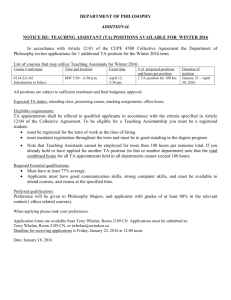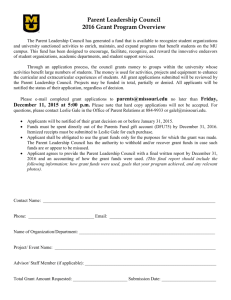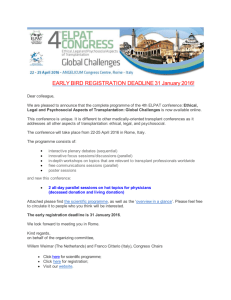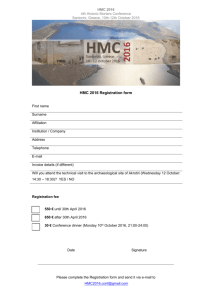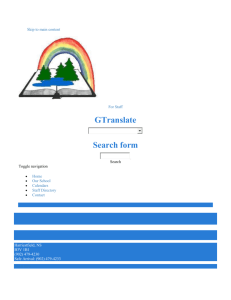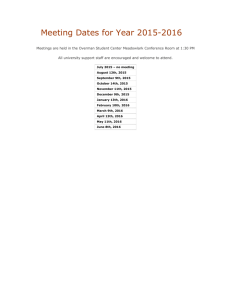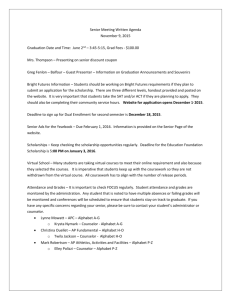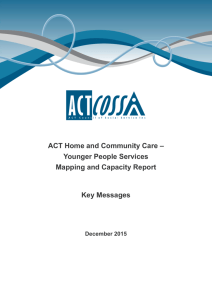Call for Competition
advertisement
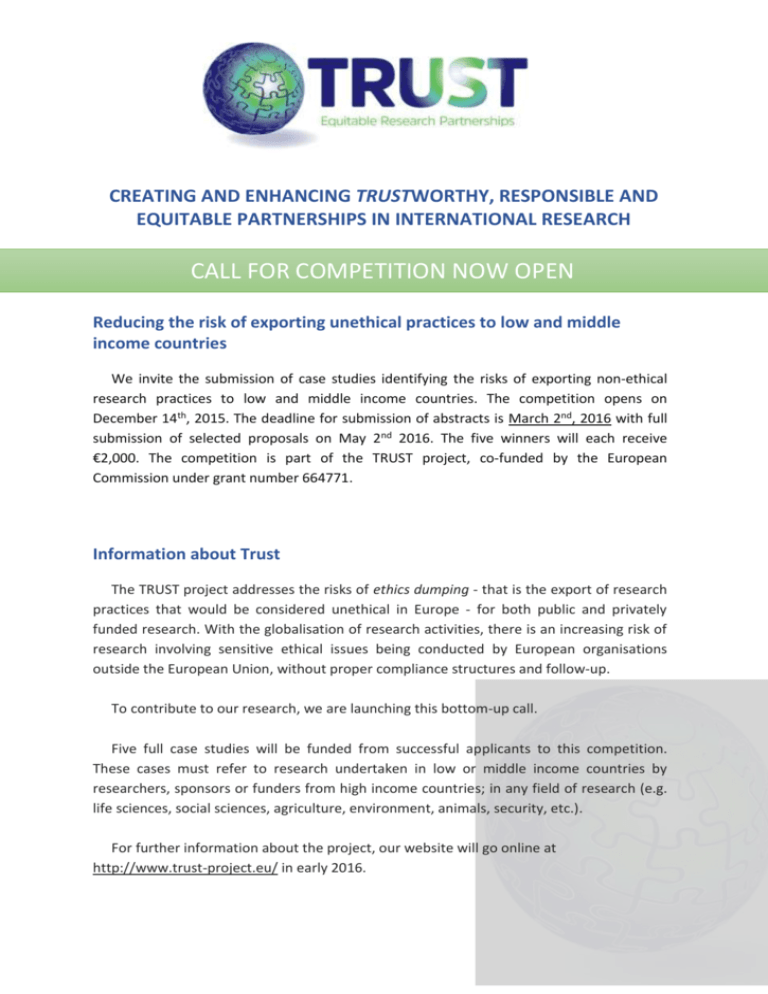
CREATING AND ENHANCING TRUSTWORTHY, RESPONSIBLE AND EQUITABLE PARTNERSHIPS IN INTERNATIONAL RESEARCH CALL FOR COMPETITION NOW OPEN Reducing the risk of exporting unethical practices to low and middle income countries We invite the submission of case studies identifying the risks of exporting non-ethical research practices to low and middle income countries. The competition opens on December 14th, 2015. The deadline for submission of abstracts is March 2nd, 2016 with full submission of selected proposals on May 2nd 2016. The five winners will each receive €2,000. The competition is part of the TRUST project, co‐funded by the European Commission under grant number 664771. Information about Trust The TRUST project addresses the risks of ethics dumping ‐ that is the export of research practices that would be considered unethical in Europe ‐ for both public and privately funded research. With the globalisation of research activities, there is an increasing risk of research involving sensitive ethical issues being conducted by European organisations outside the European Union, without proper compliance structures and follow‐up. To contribute to our research, we are launching this bottom‐up call. Five full case studies will be funded from successful applicants to this competition. These cases must refer to research undertaken in low or middle income countries by researchers, sponsors or funders from high income countries; in any field of research (e.g. life sciences, social sciences, agriculture, environment, animals, security, etc.). For further information about the project, our website will go online at http://www.trust-project.eu/ in early 2016. Eligibility criteria • • • The case study must be based on real experiences and events. Applicants can be from any organisation or background in any country (e.g. ethics bodies, funding organisations, governmental actors, Civil Society Organisations (CSOs) representing the interests of the local populations, industry, academia, policy making, etc.) Applicants must not be connected directly to the TRUST project. Any person that is an employee of any organisation involved in the project or a family member of such an employee is not eligible to enter the Competition. TRUST reserves the right to disqualify any person that it knows is, or has reasonable grounds to believe is, ineligible for the Competition as a result of this Rule. The case study can be presented from an insider or outsider perspective. Judging criteria • • • • Relevance of the case study to the field of global research ethics Clear focus on “ethics dumping” in low and middle income countries Originality of the issues raised Engaging writing style How to apply The competition is separated into two phases. PHASE 1 APPLICATION – DEADLINE 2 MARCH 2016 Applications in Phase 1 should include 1. an abstract of the case study (max. 500 words), 2. an explanation of why the case study is important (max. 300 words), Please email your application to trust-H2020@inserm.fr François Hirsch, Research Director, Manager for the H2020- TRUST partner Inserm Solveig Fenet, Deputy-manager for the H2020-TRUST partner Inserm PHASE 2 APPLICATION – DEADLINE 2 MAY 2016 Selected applicants will be informed on 31 March 2016 and will then be required to deliver their full case study by 2 May 2016 in the format shown in Appendix 1. The reports will benefit from quality assurance through peer reviewers using TRUST’s standard approach. The five winning case studies will be made available to the public via publication on the TRUST website. CALL BOTTOM-UP CASE STUDY FORMAT in PHASE 1 NAME and CONTACT details: TITLE and DATE of case: COUNTRY and REGION of case: ABSTRACT of the case study [500 words maximum]: EXPLANATION of why the case study is important [300 words maximum]: Please do not reveal personal data in your case study! CALL BOTTOM-UP CASE STUDY FORMAT in PHASE 2 NO MORE THAN 12 PAGES NAME and CONTACT details: TITLE and DATE of case: COUNTRY and REGION of case: EXECUTIVE SUMMARY [1 page] AREA OF RISK OF EXPLOITATION (e.g. no benefit sharing) [2 pages maximum] EVENT or ACTIVITY – the core case study [6 pages maximum] Background What happened To whom When Possibly quotes from people involved bringing case study to life LESSONS LEARNED [2 pages maximum] RECOMMENDATIONS FOR FUTURE AVOIDANCE OF EXPLOITATION [1 page maximum] Please do not reveal personal data in your case study!
